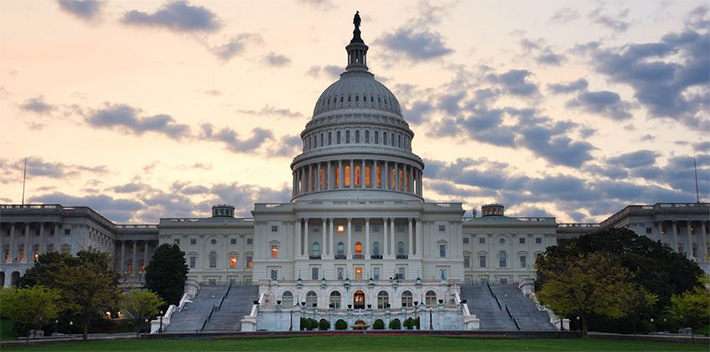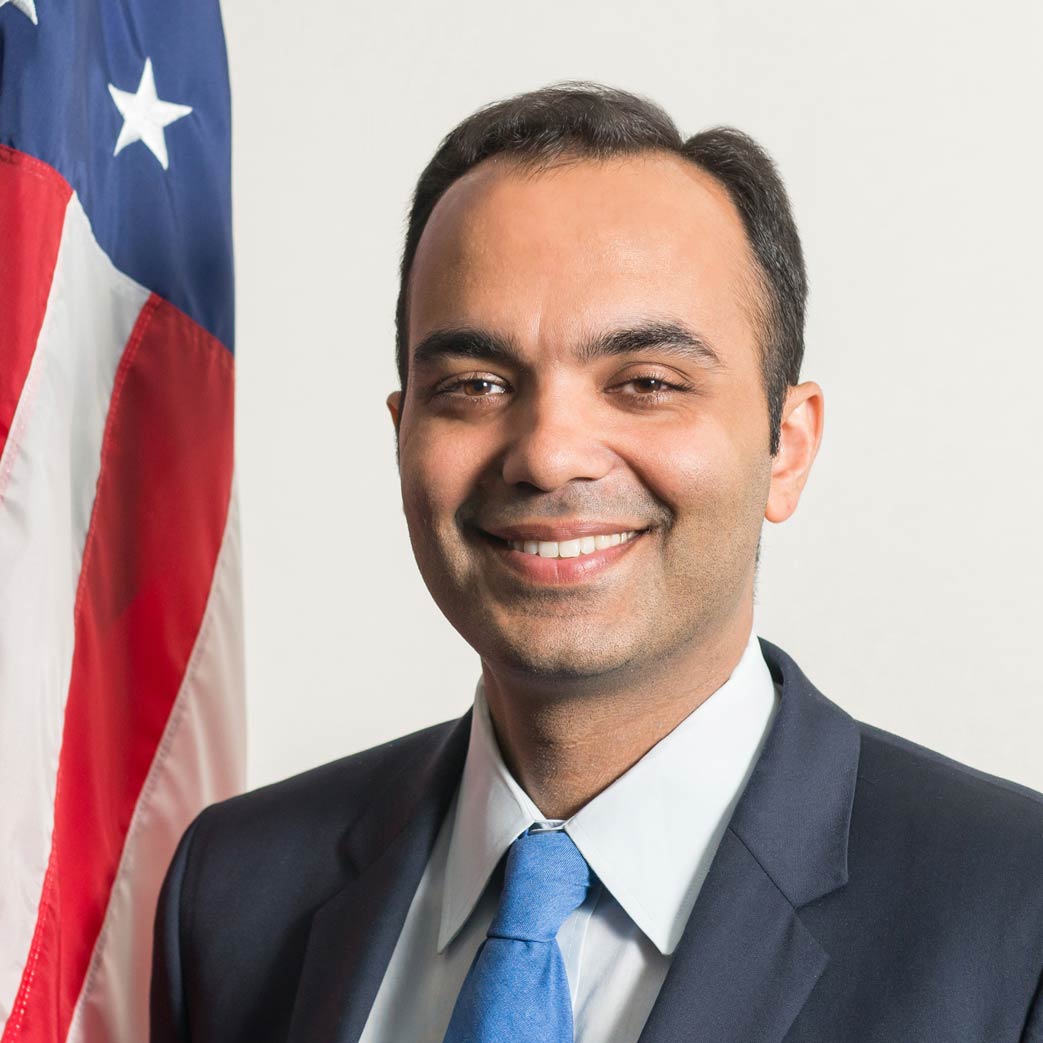Regulation
Transition to NMLS Extension Postponed to March 15, 2022
December 21, 2021With permission for reprint from Leasing News and credit to Ken Greene
 The California DFPI has extended the deadline for transitioning to the NMLS to March 15, 2022 for all those with a California license.
The California DFPI has extended the deadline for transitioning to the NMLS to March 15, 2022 for all those with a California license.
I had a long talk with the DFPI NMLS specialist and the agency is well aware that the transition process is not simple, and that many companies are having difficulty with it. I was also advised that if an application is pending but not approved when the deadline passes, your license will not be revoked. That is also good news.
This three-month extension should give everyone sufficient time to get the transition done. The process is confusing, but the folks at the DFPI are quite helpful. I urge anyone having difficulty to call them. Still, don’t wait until the last minute!
Here is the announcement:
Extension – NMLS Transition for California Financing Law Licensees: Deadline Extended to March 15, 2022
Notice of Extension
The deadline for licensees under the California Financing Law not currently on NMLS to transition onto NMLS is extended to March 15, 2022.
All licensees not yet on NMLS must establish an account in NMLS and submit their information through NMLS on or before the March 15, 2022 deadline.
Begin by Establishing an Account in NMLS
Licensees seeking to transition onto NMLS may access NMLS’s website here. From this homepage, select the button for “Getting Started – Company.”
To facilitate creating an account in NMLS, all transitioning CFL licensees should be familiar with the documentation required when setting up the account. This NMLS Account Creation Help Document describes step-by-step how to create an NMLS account and the documents needed.
Input Licensee Information
After establishing an account, a licensee must input its information on two electronic forms (three electronic forms if the licensee has branch locations). Information about the licensee is entered on the “Company Form,” MU1. Information about each key personnel (owners, officers, directors, managing members, partners, etc.) is entered on the “Individual Form,” MU2. Information about branch locations/licenses is entered on the “Branch Form,” MU3. After completing the applicable information, submit the information through NMLS.
NMLS has state-specific checklists to assist licensees transitioning onto NMLS, and FAQs for guidance on transitioning a license onto NMLS.
Questions
For questions regarding the creation of an account in NMLS, contact the NMLS Call Center at (855) 665-7123. For questions regarding transitioning a CFL license onto NMLS, contact DFPI at CFL.Inquiries@dfpi.ca.gov or (866) 275-2677.
Finally, for those of you who missed it, here is a link to my Leasing News article from 12/8/21 outlining the CFL to NMLS transition process:
https://leasingnews.org/archives/Nov2021/11_15.htm#cfl
Ken Greene Leasing & Finance Observations
https://leasingnews.org/Pages/greene_observations.html
Ken Greene
Tel: 818.575.9095
Fax: 805.435.7464
ken@kengreenelaw.com
Alternate: kengreenelaw@outlook.com
Congress Introduces New Restrictive Small Business Financing Bill
November 19, 2021 A new bill introduced by Rep. Nydia M. Velázquez, the Chairwoman of the House Small Business Committee, and Senator Robert Menendez (D-NJ), hopes to “stop predatory small business loans” by applying broad consumer protections to small business borrowers nationwide.
A new bill introduced by Rep. Nydia M. Velázquez, the Chairwoman of the House Small Business Committee, and Senator Robert Menendez (D-NJ), hopes to “stop predatory small business loans” by applying broad consumer protections to small business borrowers nationwide.
This would be done by including small businesses as a covered party under the already existing Truth in Lending Act (TILA).
The proposal, if successful, would arguably become more restrictive than New York’s recently passed commercial financing disclosure law.
Among the supporters of the bill are LendingClub and Funding Circle. No republican members of congress are listed among the sponsors in the official announcement.
The bill is similar to one introduced last year that failed to advance, the Small Business Lending Disclosure and Broker Regulation Act of 2020. That bill never made it out of the House Financial Services Committee. The makeup of Congress now, however, is different than it was last year.
New York DFS Provides New Guidance on Disclosure Law, 6 Month Delay
October 20, 2021 New York’s Department of Financial Services has provided updated guidance on the impending commercial finance disclosure law scheduled to go into effect on January 1st.
New York’s Department of Financial Services has provided updated guidance on the impending commercial finance disclosure law scheduled to go into effect on January 1st.
The main news? A six month delay.
“Financiers and brokers shall comply with disclosure requirements six months after the effective date,” the proposals state.
The comment period has also been corrected/extended to December 19, 2021. Comments are to be directed to George Bogdan at DFS.
The regulation’s draft has been amended as well and can be VIEWED HERE.
How to Comment on New York’s Commercial Finance Disclosure Law
October 4, 2021With New York’s commercial financing disclosure law on the horizon for Jan 1, the state’s Department of Financial Services is seeking input on how the law should officially be rolled out. Their draft was published on September 21st. Directions for how to submit a comment were said to be forthcoming, but the when and how to do that, were not easily discernible.
The DFS website says that comments should be submitted via email to George Bogdan, but that the time to do that has already expired, the deadline having been October 1st.
A spokesperson for DFS on social media, however, said that comments on the law can be sent to: Comments@dfs.ny.gov.
This process of emailing comments contrasts with processes at the federal level which typically employ formal portals. While it may apparently be too late, anyone that had hoped to contribute their feedback but didn’t get to, could try the above contacts.
MCA Skeptic Rohit Chopra Confirmed by Senate to Head CFPB
October 1, 2021 More than eight months after deBanked announced that FTC Commissioner Rohit Chopra would be the next head of the Consumer Financial Protection Bureau, his appointment has finally been confirmed by the Senate.
More than eight months after deBanked announced that FTC Commissioner Rohit Chopra would be the next head of the Consumer Financial Protection Bureau, his appointment has finally been confirmed by the Senate.
The confirmation of Chopra is notable given the agency’s objectives to collect data from small business finance companies and the fact that Chopra himself has been very vocal about merchant cash advances in particular.
One year ago, in his capacity as an FTC commissioner, he referred to the industry as “opaque” with “pay-day style” products whose structure “may be a sham.”
In an interview with NBC around the same time, he used stronger language, saying that he was “looking for a systemic solution that makes sure they can all be wiped out before they do more damage.”
Chopra knows his way around the CFPB. He worked for the agency when it first started in 2010 and was there for five years as the Assistant Director & Student Loan Ombudsman. He later moved to the FTC as a commissioner and now returns back at the CFPB in the director’s seat.
New York DFS: The Commercial Financing Disclosure Requirement is Happening
September 21, 2021 New York State’s financial regulator announced that the commercial financing disclosure law is moving forward as planned for the Jan 1, 2022 deadline.
New York State’s financial regulator announced that the commercial financing disclosure law is moving forward as planned for the Jan 1, 2022 deadline.
To prepare those that will be subject to it, Acting Superintendent Adrienne A. Harris released a copy of proposed regulations that will be open to comment for 60 days.
Its length, 45 pages, demonstrates the complexity that compliance will require. Anyone involved in commercial or small business financing should take the careful time to read it.
“The Department of Financial Services will then review all received comments and issue a final regulation,” the announcement says.
IRS Snooping Flexes Government Power, but May Drive Crypto
September 14, 2021 To fight tax evasion, the federal government wants the IRS to track any account in the United States that transacts more than $600 in or out over the course of a year. The tracking will apply to banks and other financial institutions. The feds claim that they will use any found tax dollars to help finance the administration’s new $3.5 trillion spending plan.
To fight tax evasion, the federal government wants the IRS to track any account in the United States that transacts more than $600 in or out over the course of a year. The tracking will apply to banks and other financial institutions. The feds claim that they will use any found tax dollars to help finance the administration’s new $3.5 trillion spending plan.
Such a move could push a suspicious populace into crypto, where records, however openly recorded on blockchains, could potentially obscure the parties involved.
Banks have fought against the government’s push to share account transactions, as they argue it will be a major invasion of privacy. This will undoubtedly create an entire new workload for them as well, as the banks will have to provide intricate details on most of the accounts on their books — an unprecedented task.
“I don’t believe that much is going to change,” said Yoel Wagschal, a CPA. Wagschal stresses to his clients to always live their life as if the government has access to the information about their spending habits for the sake of their wellbeing.
“The issue at hand is how far this is going to [go], how far the government’s reach will be,” said Wagschal. “When a government body gets power, they don’t give it back. Look at the power wagon they are on.”
As crypto becomes more of an avenue to store and invest money, it may also be a new channel for coin holders to keep their finances shrouded behind additional layers from the federal government.
More TCPA Lawsuits Could be Inbound
September 12, 2021 Despite a significant drop in TCPA cases since 2018, a flurry of new TCPA cases could be on the horizon as TCPA plaintiff attorneys had been telling clients to hold off — pending the reaction of Facebook’s recent Supreme Court case, according to Michael O’Hare, Chairman of Colorado-based Cashyew and operator of the TCPA Litigator List. The Court ultimately narrowed the definition of an autodialer.
Despite a significant drop in TCPA cases since 2018, a flurry of new TCPA cases could be on the horizon as TCPA plaintiff attorneys had been telling clients to hold off — pending the reaction of Facebook’s recent Supreme Court case, according to Michael O’Hare, Chairman of Colorado-based Cashyew and operator of the TCPA Litigator List. The Court ultimately narrowed the definition of an autodialer.
O’Hare heads a service that provides names of individuals and their attorneys who have sued under the TCPA law, protecting his clients from what has become an industry in and of itself.
“It’s a fight between free speech and privacy,” said O’Hare, when asked what the hardest part about leading an organization that protects businesses from falling victim to these kinds of suits is. He worries that his clients will be preyed upon by serial litigators that go after businesses searching for some type of settlement. According to O’Hare, some of these cases can cost tens of thousands of dollars to fight in court.
“The government has empowered citizens to become the enforcer,” said O’Hare. The law allows citizens to privately sue unsolicited callers who disrupt their daily lives, subsequently creating an entire industry out of these kinds of suits alone.
“People are making a 6-figure living,” he said.
Since deBanked covered this minefield back in 2016, the TCPA has not changed. Some states like Florida and California have adopted their own versions of the law, but the federal law has gone unchanged for thirty years.
The robocallers have also adapted to the lack of upkeep of the TCPA, as the concept of “spoofing” has become a weird ethical gray area in the telemarketing industry. By showing the area code that’s identical to the number being dialed on that number’s caller ID, the user is believed to be more likely to answer. Not covered by the TCPA, organizations like the FCC have begun to step in and put a stop to the tactic.
This “decentralization of enforcement,” as O’Hare called it, may do more harm than good, giving these serial litigators and their clients more avenues of reason to sue.
The ambiguity of what defines a work phone versus a personal phone is much more prevalent now than it was in 1991. With cell phones, smart watches, and the elimination of the home phone for millions of Americans, the TCPA has become antiquated.
“Do they want us to go back to a rotary phone?” O’Hare sarcastically asked.
O’Hare stressed that lenders respect their clients and abide by basic ethics. “Always be scrubbing,” he said. “Prevention is not expensive, litigation is”.
Besides using services like his, O’Hare suggests using basic ethics and understanding to protect merchants that don’t want their calls. “If someone asks, take them off the list,” he said, “avoid trouble and respect the Do-Not-Call list.”





























